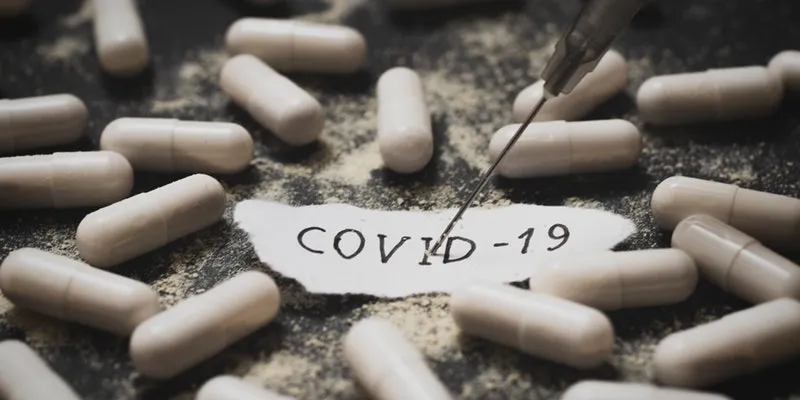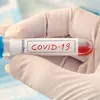How life science companies across the world are working to fight coronavirus
Pharma giants like Novartis, BD, Boehringer Ingelheim, Bristol-Myers Squibb, Merck, Pfizer, and Sanofi are focusing on potential vaccines and diagnostics to treat COVID-19.
As the number of coronavirus cases across the globe continues to rise, serious questions are being raised about the lack of public health infrastructure. The dearth of testing kits, hospital beds, diagnostic laboratories, and health professionals has been leading to fatalities.
Many pharmaceutical and life science companies are bringing in a glimmer of hope amid the distress by working on developing drugs, vaccines, and other cures for COVID-19.

Collective action
The life sciences industry comprises companies and firms involved in biotechnology, pharmaceuticals, biomedical technologies, and nutraceuticals. Over the years, they have gained experience in managing products and processes related to diagnostics, medical compounds, investigational vaccines, and medicines.

With the World Health Organisation (WHO) declaring coronavirus a pandemic, all eyes are on the life sciences industry. Will it will succeed in finding a life-saving vaccine that could put an end, or slow down the impact of the novel coronavirus?
Gates Foundation steps up
On March 25, 2020, a consortium of firms alongside the Bill and Melinda Gates Foundation announced their collaboration to put together a range of assets, resources, and expertise, to identify compelling and scalable solutions to the pandemic.
Vas Narasimhan, the Co-chair of the consortium and the CEO of , said, “We feel a deep shared responsibility to look out for specific areas where we can accelerate solutions to this pandemic. Apart from individual contributions, collective action is critical to ensure desired results.”

Vas Narasimhan, CEO, Novartis.
While the Swiss multinational pharmaceutical house Novartis is one of the key contributors engaged in the research and development of potential vaccines and diagnostics to treat COVID-19, other companies that are ponying up their endeavour include BD, bioMérieux, Boehringer Ingelheim, Bristol-Myers Squibb, Eisai, Eli Lilly, Gilead, GSK, Johnson & Johnson, Merck (known as MSD outside the US and Canada), Merck KGaA, Pfizer, and Sanofi.
“We know that the private sector has the technical skills and know-how in discovery, clinical trials, and commercialisation. Our Foundation is looking to harness this experience collectively through the consortium," says Mark Suzman, CEO, Bill & Melinda Gates Foundation.
"[We want to] connect with national regulators as well as the WHO to see if the curve of the pandemic can be flattened. It is important to make sure that the outcome reaches the masses, especially the ones who are faced with risk and poverty,” Mark adds.
The consortium has already agreed to share proprietary libraries of molecular compounds, which have certain degree of safety with the COVID-19 Therapeutics Accelerator, an initiative launched by three entities: the Gates Foundation, Wellcome, and . Once the compounds are screened, successful hits will be quickly moved for vivo trials in the next two months.

Bill and Melinda Gates.
Image Credit: Kjetil Ree, Wikimedia Commons
“This is an encouraging start in a critical area, because if any of these compounds are shown to be effective against COVID-19, it dramatically accelerates the path to product approval and scale up. Additionally, since each of the consortium’s partners will also be pursuing independent efforts with several national governments, we are optimistic of addressing the present global health emergency,” Mark says.
Mission COVID-19
Apart from these firms, a host of other biotech organisations are in the process of developing vaccines and therapeutics targeting the virus.
Moderna, a Massachusetts-based biotechnology company known for its drug development, is working on a potential vaccine using sequences that code for the most immunogenic part of COVID-19, including antigens and surface proteins.
Gilead Sciences is all set to kickstart its trial to explore the antiviral remdesivir’s ability to treat COVID-19 in the coming weeks. US firm Regeneron recently entered its second global clinical trial to assess medication as a treatment for coronavirus using a rheumatoid arthritis drug called Kevzara.
India’s Ventures, a B2C platform for genetic and microbiome testing, is conducting house microbiome and genetic tests to tackle the virus. The company claims that it has discovered specific gene variants responsible for an individual’s susceptibility to the virus and is planning to launch shortly. It is also in the process of introducing home diagnostic kits.
(Edited by Javed Gaihlot)








